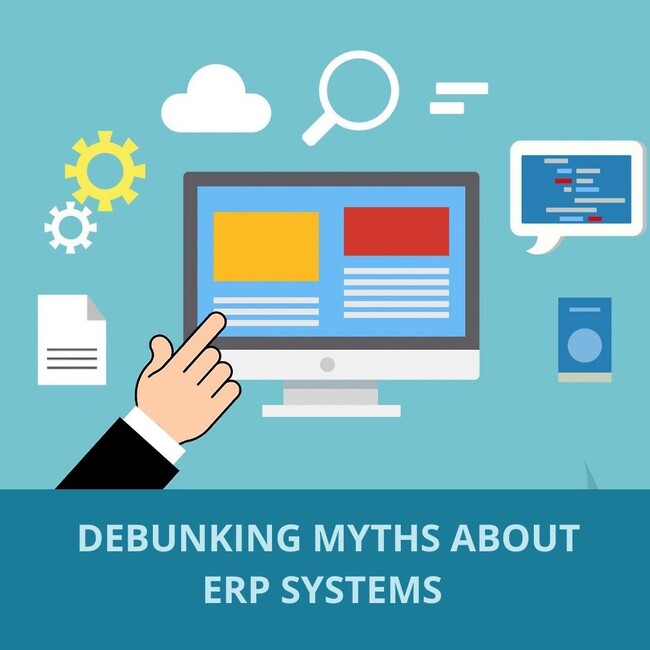Debunking 3 Myths About ERP Systems

It is now evident in this digital climate that opting for custom ERP systems is prudent for most businesses, as they offer myriad benefits such as inventory management, reporting, shipment tracking and more. However, there are still multiple myths surrounding this invaluable system that leads to companies getting less than optimal results. Here are 3 such prevalent misconceptions that you need to be aware of to get the best possible outcome by implementing ERP systems.
Misconceptions about ERP systems
ERP Is Unsuitable For Small Companies
This has become a myth in recent years but was considered true once upon a time when developing an ERP system was extremely complex and expensive. However, this is no longer true, due to three primary reasons:
- Cloud: With the advent of cloud computing, investing in expensive hardware and maintenance is no longer necessary.
- Software As A Service (SaaS): With the inception of SaaS, companies no longer have to pay the amount in bulk. Instead, they can choose to pay on a monthly basis to a third-party vendor like a subscription.
- Modular Integrations: Instead of purchasing an entire software, companies can simply purchase modules or small aspects of the software that is absolutely necessary for their operation.
ERP Is Unsuitable For Small Companies
This has become a myth in recent years but was considered true once upon a time when developing an ERP system was extremely complex and expensive. However, this is no longer true, due to three primary reasons:
- Cloud: With the advent of cloud computing, investing in expensive hardware and maintenance is no longer necessary.
- Software As A Service (SaaS): With the inception of SaaS, companies no longer have to pay the amount in bulk. Instead, they can choose to pay on a monthly basis to a third-party vendor like a subscription.
- Modular Integrations: Instead of purchasing an entire software, companies can simply purchase modules or small aspects of the software that is absolutely necessary for their operation.
Cost Is The Primary Factor
At the outset, it makes logical sense. After all, if a company invests in an ERP system, then it should be cost-effective as well as high-quality. However, this software is also constantly updating and integrating new changes as a business grows and changes its operation methods. Thus, the most important factor is actually the relationship between the company and the vendor offering the ERP system. Hence, choosing a competent vendor will result in smooth maintenance, removal of bugs if they crop up and timely updates which can keep up with the scale of a business.
ERP Can Go Live In Months
This is an optimistic outlook at best, even if all the planning is immaculate. Most companies fail to account for the massive changes that will need to be implemented by using ERP software. Not only are the systems getting a complete overhaul, but basic processes of operation might also change. Hence, businesses should account for this dual degree of change and create a more realistic timeline so that they are not disappointed with the result.
Ultimately, by being aware of these 3 popular myths about ERP systems, a business can extract maximum benefits by not falling into these classic traps.
An expert custom software development firm based out of Toronto, we at Vestra Inet believe in excellence and innovation. Our skilled developers can help craft the perfect ERP software that will catapult your business to the next level. To know more about our services and pricing, reach out to us today.
